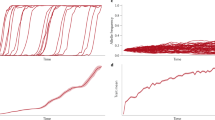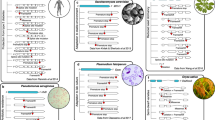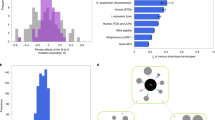Abstract
THE term mutation in the modern sense means a discontinuous germinal change. Conceptions of continuity or discontinuity have played an important role in the history of thought not only in biology, but also in other sciences, notably physics and geology. In the latter science the earlier and cruder theories of catastrophism, in which the sudden extinction of floras and faunas was followed by the creation of new ones, were superseded by the uniformitarianism of Lyell. This, coupled with the slow and gradual modification of species as upheld by Darwin, led to a complete triumph of “continuity.” But with the followers of Darwin it frequently reached an extreme expression which was not in accordance with the facts of biological variation. It was thought that variations which were often spoken of as infinitesimal, could be accumulated in any direction to produce new species. But to produce a new species by this method, such accumulation of infinitesimals must take place simultaneously in several diverse directions, for species differ from each other in a number of independent characters.
This is a preview of subscription content, access via your institution
Access options
Subscribe to this journal
Receive 51 print issues and online access
$199.00 per year
only $3.90 per issue
Buy this article
- Purchase on Springer Link
- Instant access to full article PDF
Prices may be subject to local taxes which are calculated during checkout
Similar content being viewed by others
References
From a lecture delivered at King's College, University of London, for the Board of Studies on the History, Principles and Methods of Science.
Gates, "The Mutation Factor in Evolution", 1915.
Gates, "The Trisomic Mutations of Oenothera", Ann. of Bot., vol. 37, P. 543, 1924.
"Polyploidy." Brit. Journ. Exptl. Biol., 1, 153–182, 1924.
See for example Gates, "Mutations and Evolution," 1921.
Rights and permissions
About this article
Cite this article
GATES, R. Mutation. Nature 115, 499–500 (1925). https://doi.org/10.1038/115499a0
Issue Date:
DOI: https://doi.org/10.1038/115499a0
Comments
By submitting a comment you agree to abide by our Terms and Community Guidelines. If you find something abusive or that does not comply with our terms or guidelines please flag it as inappropriate.



